Rutile Electrodes
This electrode can really be used universally. It can be used in
any position and with many different applications. It provides
an exceptional self-assurance for welders. Good weld bead
appearance. Easy slag removal.
Applications
Metal structures in general, sheet metal, piping, metal works,
containers, tanks, boilers, handicrafts, ironmongery, etc...
Advantages :
- Universal all positions
- Excellent handling
- Smooth and stable arc
- Self-releasing slag
|
Typical Weld Metal Composition (%):
|
Fe:
(base)
|
C:
<0,10 |
Mn:
0,6 |
Si:
0,4 |
S:
<0,025 |
P:
<0,025 |
|
All Weld Metal Mechanical Properties:
|
Rp 0,2: > 400 MPa
Rm: 510-580 MPa
A5:
> 22 %
|
|
Electrode polarity:
|
Negative |
|
Output Circuit Voltage (OCV):
|
∼ 40 V |
Basic Electrodes with High Weldability
Basic coated electrode presenting exceptional welding
characteristics due to its double coating. Arc very stable.
Almost spatter-free. Easy removal of the slag. Recommended for
root passes and on badly prepared joints.
Applications :
Frames, heavy supports, shipbuilding, pressure vessels, metal
constructions and all repair works.
Advantages :
- Excellent handling for welders
- High resistance to cracking
- Smooth and stable arc
- Easy slag removal
Technical Data
|
Typical Weld Metal Composition (%):
|
Fe:
(base) |
C:
<0,10 |
Si:
0,7 |
Mn:
0,9 |
P:
0,02 |
S:
<0,02 |
|
All Weld Metal Mechanical Properties:
|
Re: 450 MPa
Rm: 550 MPa
A5: 27 %
|
| Electrode polarity: |
Positive |
| Output Circuit Voltage (OCV): |
∼ 70 V |
Stainless Steel 316l Rutile-Basic Electrodes
It is a Rutile-basic electrode, providing a weld metal in low
carbon austenitic stainless steel (316L). Used for welding of
18/8/3 austenitic stainless steels and cladded steels. It
provides excellent resistance to corrosion. Smooth welding. Easy
slag removal.
Applications
Chemical and petrochemical industries, shipbuilding, tanks,
pipes, heat exchangers, food industry.
Advantages
- Low carbon universal stainless steel
- Excellent corrosion resistance
- Excellent handling for welders
- Coating with very low moisture absorption
Technical Data
|
Typical Weld Metal Composition (%):
|
Fe:
(base)
|
C:
<0,03
|
Si:
0,8
|
Mn:
0,7
|
Cr:
18,5
|
Ni:
12 |
Mo:
2,7
|
|
All Weld Metal Mechanical Properties:
|
Rp 0,2: > 400 MPa
Rm: > 560 MPa
A5:
> 35%
|
|
Electrode polarity:
|
Positive |
|
Output Circuit Voltage (OCV):
|
∼ 70 V |
Stainless Steel 312 Rutile-Basic Electrodes
Rutile-basic electrode with an enhanced mechanical
characteristic of the deposit of stainless steel. Highly
resistant to cracking. Welding all low-alloy and high-alloy
steels. It is a multipurpose electrode for high security
repairs. Soft fusion, nice appearance of the beads, self
releasing slag.
Applications
Repairing and maintenance on dissimilar, difficult-to-weld or
unidentified steels. Suitable for buffer layers before hard
facing, building up piston rods, gears.
Advantages
- Ideally universal
- High resistance
- Stainless deposit
- Nice appearance of the weld beads
Technical Data
|
Typical Weld Metal Composition (%):
|
Fe:
(base) |
C:
<0,10 |
Si:
1,0 |
Mn:
0,6 |
Cr:
29,0 |
Ni:
9,5 |
Mo:
0,5
|
|
Mechanical characteristics of the deposit:
|
Rp 0,2: > 500 MPa
Rm: 750/850 MPa
A%:
> 20
|
| Electrode polarity: |
Positive |
| Output Circuit Voltage (OCV): |
∼ 50 V |
Nickel Pure Electrodes for Cast Iron
Graphite electrode with high percentage of nickel, for cold
repairing of different grades of cast iron. Very soft fusion.
High conductivity.
Applications
Repairing of engine blocks, frames of tool machines, gear
reducers, valve and pump bodies, cast parts.
Advantages
-
Excellent weldability in all positions, without preheating.
- Homogeneous and easy-machining deposit.
- Great deposit extension for lamellar cast iron.
- Ideal for repairing old cast iron.
Technical Data
|
Typical Weld Metal Composition (%):
|
Fe:
<2 |
C:
1,2 |
Si:
<2 |
Mn:
<1 |
Ni:
>95 |
|
All Weld Metal Mechanical Properties:
|
Rm: >300 MPa
Hardness: ~ 180 HB
|
| Electrode polarity: |
Positive, Negative |
| Output Circuit Voltage (OCV): |
~ 40 V |
Hardfacing Electrodes
Rutile-basic coated electrode for surfacing of machines and
construction parts suffering from wear and tear, as well as of
tools made of low-alloyed and cast steels. Resistant to medium
abrasion, shock and pressure. Electrodes are easy to weld even
on small welding equipment with low open arc voltage. Soft flow,
almost no spatters, self releasing slag, nice aspect of the weld
beads, crack free deposit, machinable by grinding.
Applications
Hardfacing of moulds, scrapers, buckets and bucket teeth,
excavator parts, chisels, conveyer screws, track links, cutting
tools, crusher cones.
Advantages
- Universal all positions
- Good resistance to abrasion, shock and pressure
- Self releasing slag
- Machinable by grinding
Technical Data
|
Typical Weld Metal Composition (%):
|
Fe:
(base)
|
C:
1 |
Si:
0,5
|
Mn:
1,3
|
Cr:
4,5
|
|
Hardness:
|
~ 600 HB; 55-60 HRC Obtained in pour weld metal, 2-3
layers
|
|
Electrode polarity:
|
Negative |
|
Output Circuit Voltage (OCV)
|
~ 45 V |
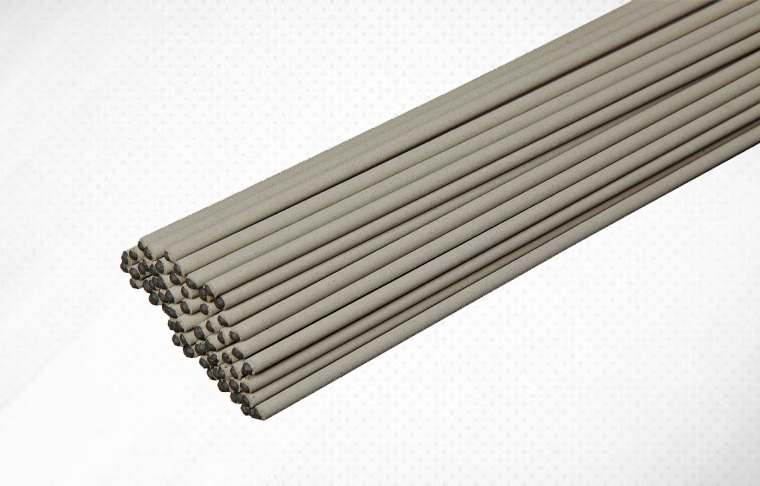

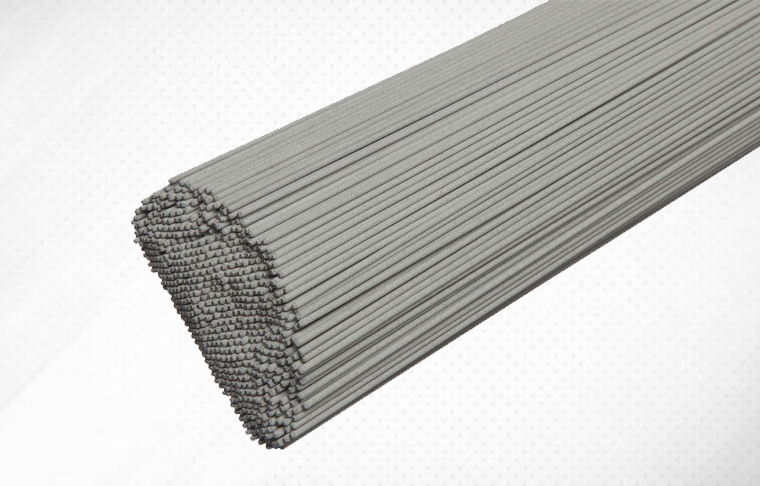
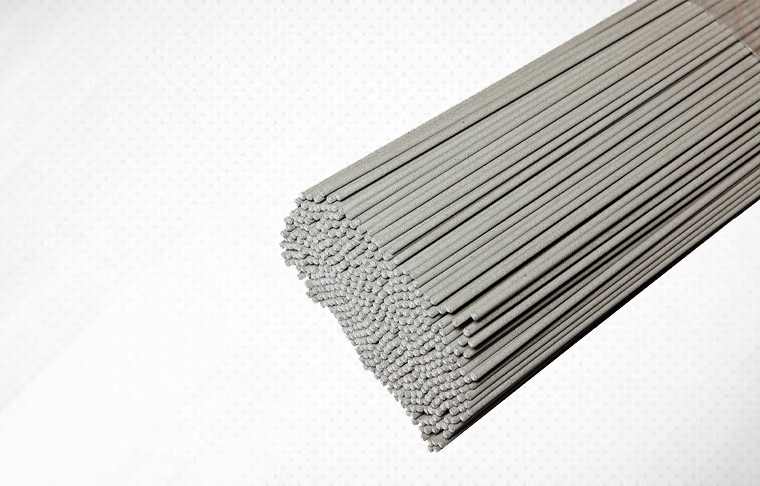
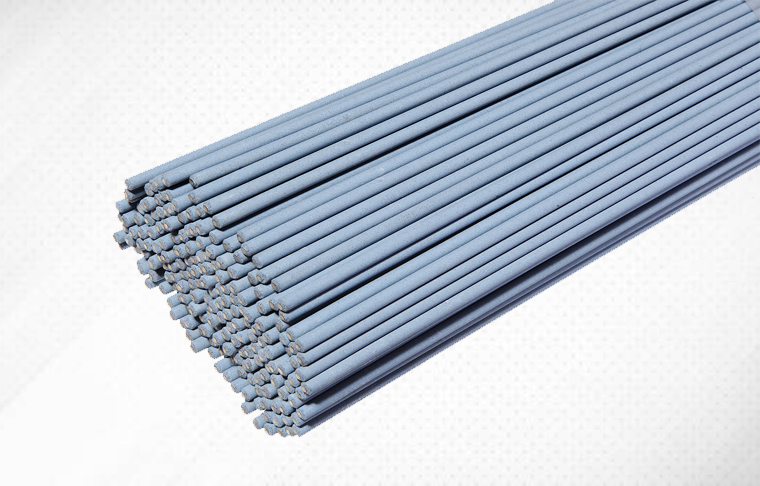
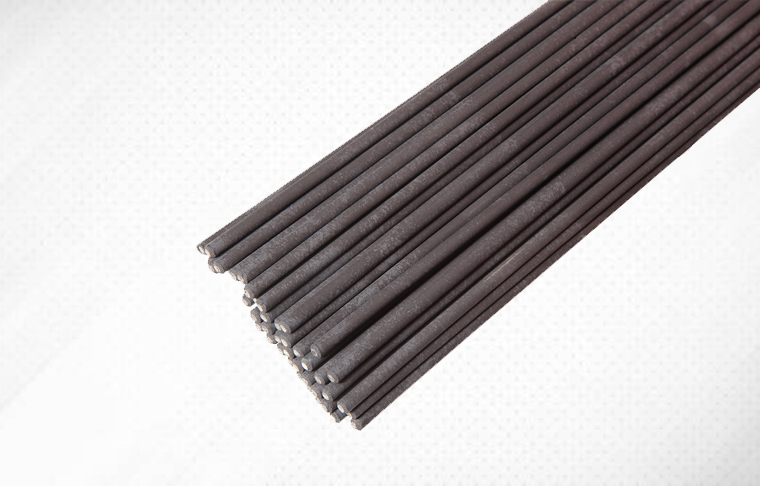
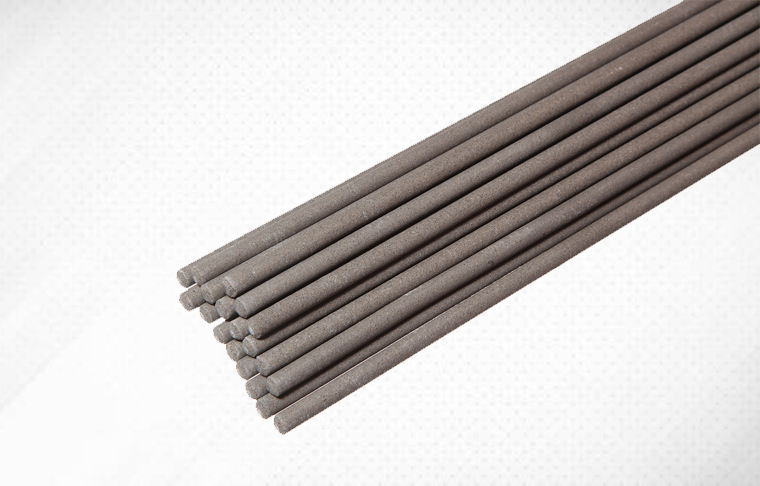
Leave a Comment